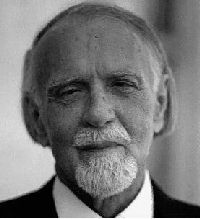 (born
Kecskemét, 16 December 1882; died Budapest, 6 March 1967).
(born
Kecskemét, 16 December 1882; died Budapest, 6 March 1967).
Brought up in the country, he knew folk music from childhood and also learnt to play the piano and string instruments, and to compose, all with little tuition. In 1900 he went to Budapest to study with Koessler at the Academy of Music, and in 1905 he began his collaboration with Bartók, collecting and transcribing folksongs. They also worked side by side as composers, and Kodály's visit in 1907 to Paris, bringing back Debussy's music, was important to them both: their first quartets were played in companion concerts in 1910, marking the emergence of 20th-century Hungarian music.
Kodály, however, preferred to accept rather than analyse folk material in his music, and his style is much less contrapuntal and smoother harmonically. His major works, notably the comic opera Háry János, the Psalmus hungaricus, the 'Peacock' Variations for orchestra and the Dances of Marosszék and Galánta draw on Magyar folk music (unlike Bartók, he confined himself to Hungarian material). His collecting activity also stimulated his work on musical education, convincing him of the value of choral singing as a way to musical literacy. He taught at the Budapest Academy from 1907, and after World War II his ideas became the basis of state policy, backed in part by his own large output of choral music, much of it for children, as well as other exercise pieces, and was widely used as a model abroad.